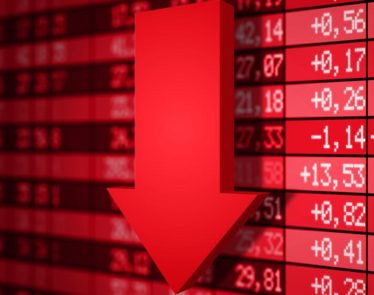Despite the broader sector of the market underperforming in comparison to other market groups, investors are continuing to test the waters of junior biotech. In 2016, there was a massive attack on industry price fixing which still weighs on sentiment, even though the new administration hasn’t brought in legislation that would help to regulate price gouging. As of right now, it seems very unlikely that modest controls will become the law.
Rather than attracting buying interest through profits, most small biotech operations will attract interest through hopeful compounds and bullish news. There are a few investors who have been able to build their capital on diseases and orphan drugs, which are circumstances that other companies have failed to monetize. This allows investors the chance to go down the road of success, in which larger corporations have already tried and decided to reject.
Of course, owning small biotech comes with a degree of risk. Most notably, the biggest risk seen with small biotechs comes from secondary offerings and sweetheart deals (deals that just can’t be passed up) with big name investors who diminish the value of common shares. In response to these events, shares can decrease in double-digit percentages. Luckily, however, these stocks often bounce-back just as quickly as they can drop. This notifies marketers to limit their position size, as they might want to add to exposure when there is a big decline happening in the market.

1. Immunomedics, Inc. ($IMMU)
Through clinical-stage compounds, Immunomedics targets autoimmune diseases and cancer. In 2000, IMMU hit a high of $41.13 and in 2009, the company sold off to a multi-decade low at 84 cents. In March of 2017, the stock came back to resistance and broke out in May, which lead it to reaching a 13-year high.
The company is headed into a test of the high of $9.70 which was seen in 2003, and this marks resistance from a double top breakdown in 2002. There are a number of ways that will work with this set up. First and foremost, if the company purchases a pullback that fills up the May gap roughly between $5.50 and $6.00, this would offer room into contested levels. Second, if Immunomedics purchases a partial position with a stop low that is below 6-week channel support, this could survive the testing process and offer the opportunity to double or triple after a breakout.

2. SteadyMed Ltd. ($STDY)
SteadyMed, which is a pharmaceutical company, looks for opportunities with orphan diseases through PathPump, which is a drug administration pump. SteadyMed filed a 7.5 million share secondary offering on May 25 which has yet to be priced. The stock first came public in March of 2015 at $8.06 and it hit a high a few weeks later at $11.14. This downtrend continued throughout the January 2016 low at $2.00, which was ahead of the quiet basing action with resistance near $5.00.
At the end of March 2017, the stock broke out and it lifted in a 2-day vertical advance which reached the Initial Public Offering opening print. SteadyMed has been combining these gains throughout the last two months, grinding out resistance at $7.50. If there is a breakout above that level, it should reach the April high quite quickly. This will set up a test at the 2015 high in double digits. Until these secondary shares enter the public market, it is best that investors step to the side.

3. Catalyst Pharmaceutical, Inc. ($CPRX)
Catalyst Pharmaceuticals is a biopharmaceutical company based in Florida, and they focus on rare debilitating diseases and treatments for conditions such as epilepsy, Tourette syndrome, and infantile spasms. This Florida-based company is partners with Biomarin Pharmaceutical, Inc ($BMRN), which allows for a monetary advantage. The stock first entered the public’s eye in 2006 at $6.00 and in 2009, it entered a downtrend that resulted in 39 cents. In 2012, it undercut that level by roughly 2 cents, which was ahead of an uptrend that halted at $5.80 in 2015.
A high April low in 2016 led to a wave of recovery that has continued in Q2 of 2017. Just recently, the stock broke from a small scale cup and handle pattern that has a resistance at $2.17 and it is currently at a 16-month high. That said, the stock could face resistance at the 2-15 double top breakdown between $2.75 and $3.00. If there is strong buying interest, this could lead to a break in the barrier which would reveal an open window to a $5.80 to $6.00 level.
The Takeaway
There are a number of junior biotech stocks that are elevating higher, which are attracting a stable buying interest. This buying interest could offer investors remarkable profits. Keep in mind however that this group has more risk involved which requires management to be aggressive in order to protect their stocks from unanticipated burdens.
Featured Image: twitter












